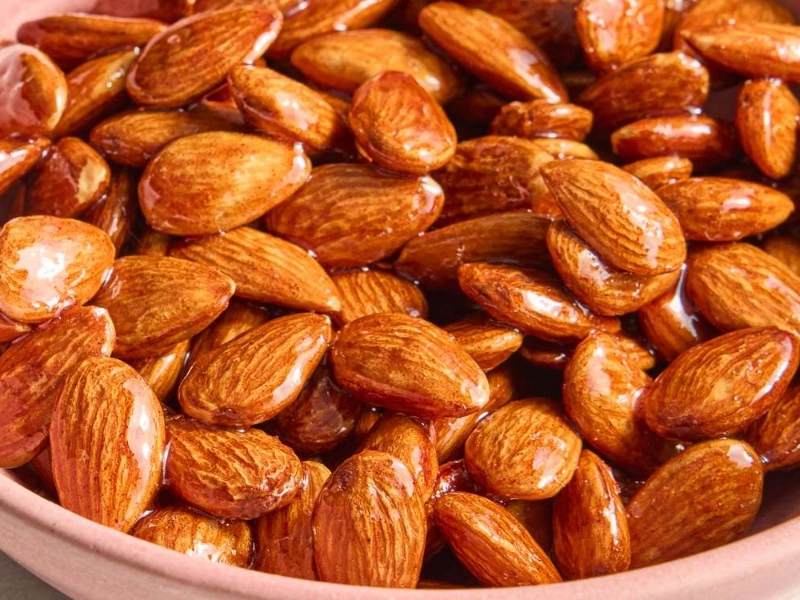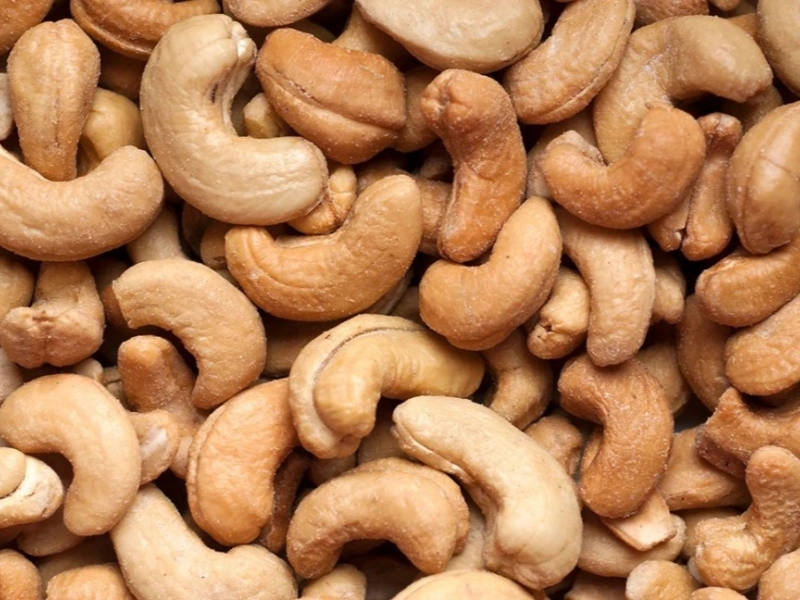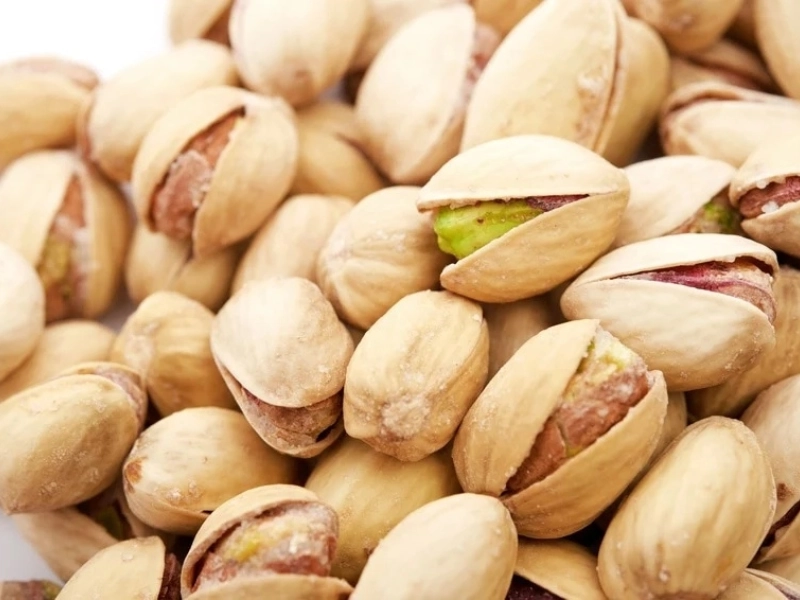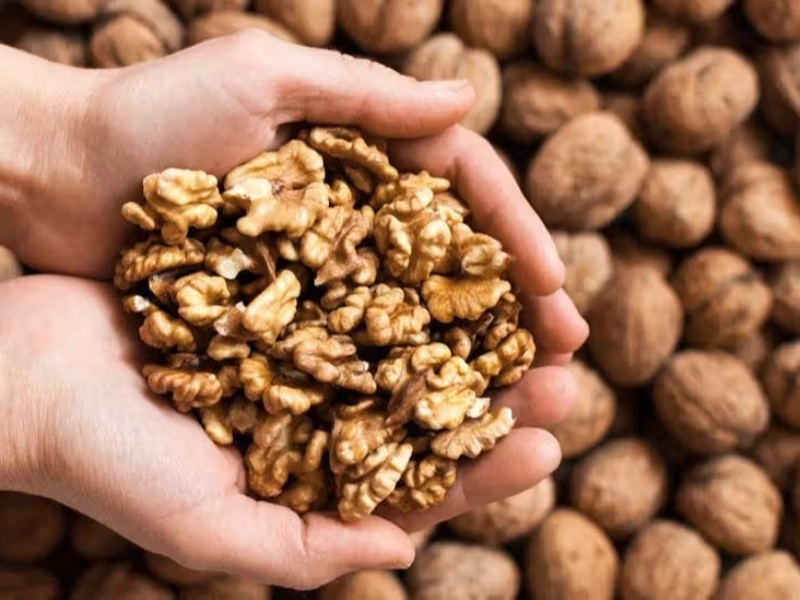How Various Nuts Can Be Particularly Beneficial to Your Health
Nuts are an excellent source of fiber, phytosterols, healthy fats, vitamins, and minerals in addition to plant protein. You can eat them on their own or as a garnish for salads. There is diversity in the textures, flavors, and nutritional profiles of the various types of nuts. They are also a fantastic way to give meals and snacks a crunch.
Almonds

Cashews
 Nutrient-dense cashews can be added to salads, used as a seasoning in savory recipes, or even made into cashew butter. These are the seeds of cashew apples, which are endemic to many Caribbean islands, Central and South America, and trees of those regions.
Regular cashew consumption has been associated with a decreased risk of heart disease. They include a lot of magnesium, potassium, and good monounsaturated fats. Additionally, they contain tryptophan, an amino acid that aids in the production and regulation of serotonin in your body.
Antioxidants, which counteract dangerous molecules known as free radicals and aid in lowering inflammation in the body, are also present in raw cashews.
Nutrient-dense cashews can be added to salads, used as a seasoning in savory recipes, or even made into cashew butter. These are the seeds of cashew apples, which are endemic to many Caribbean islands, Central and South America, and trees of those regions.
Regular cashew consumption has been associated with a decreased risk of heart disease. They include a lot of magnesium, potassium, and good monounsaturated fats. Additionally, they contain tryptophan, an amino acid that aids in the production and regulation of serotonin in your body.
Antioxidants, which counteract dangerous molecules known as free radicals and aid in lowering inflammation in the body, are also present in raw cashews.
Hazelnuts
 Because they can be a source of fat and protein, hazelnuts are special among nuts. They also include significant concentrations of phytosterols and vitamin E, which both assist prevent heart disease.
They are rich in phenolic chemicals, which reduce inflammation and blood cholesterol and may even help prevent cancer. They are also a fantastic source of magnesium, which has blood pressure-lowering properties.
Hazelnuts have been demonstrated in test-tube research to prevent the production of advanced glycation end-products (AGEs), which can cause cells to age too quickly and worsen oxidative stress and chronic inflammation in diabetics. Nevertheless, further investigation is required to ascertain whether these consequences also apply to humans.
Because they can be a source of fat and protein, hazelnuts are special among nuts. They also include significant concentrations of phytosterols and vitamin E, which both assist prevent heart disease.
They are rich in phenolic chemicals, which reduce inflammation and blood cholesterol and may even help prevent cancer. They are also a fantastic source of magnesium, which has blood pressure-lowering properties.
Hazelnuts have been demonstrated in test-tube research to prevent the production of advanced glycation end-products (AGEs), which can cause cells to age too quickly and worsen oxidative stress and chronic inflammation in diabetics. Nevertheless, further investigation is required to ascertain whether these consequences also apply to humans.
Macadamia nuts
 A good source of protein and important elements including calcium, magnesium, potassium, and phosphorus may be found in macadamia nuts. These minerals maintain healthy kidney function, increase energy generation, and strengthen bone health. Additionally, the nuts are a great source of antioxidants, which help lower inflammation and oxidative stress, two factors that can lead to chronic illnesses.
Macadamia nut fat increases satiety, which can help regulate appetite and prevent overindulging. But since too many of these nuts might cause digestive issues, it's recommended to eat them in moderation.
A good source of protein and important elements including calcium, magnesium, potassium, and phosphorus may be found in macadamia nuts. These minerals maintain healthy kidney function, increase energy generation, and strengthen bone health. Additionally, the nuts are a great source of antioxidants, which help lower inflammation and oxidative stress, two factors that can lead to chronic illnesses.
Macadamia nut fat increases satiety, which can help regulate appetite and prevent overindulging. But since too many of these nuts might cause digestive issues, it's recommended to eat them in moderation.
Pecans
 Pecans are among the healthiest nuts—you may associate them with Grandma's sugary pecan pie, but that's only after the sweet covering is gone. They are rich in antioxidants and "good" unsaturated fats. They also assist in blood sugar management and healthy weight promotion.
In overweight people, a diet high in pecans enhanced insulin production, glucose tolerance, and pancreatic beta cell activity, indicating that pecans may be helpful in managing diabetes (12). They also supply magnesium and phosphorus, which are necessary for the development of new bones and the health of the skeleton. A 28-gram portion of pecans provides 12% of your daily required amount of zinc, which supports healthy immunological function, cell division, and the synthesis of red blood cells.
Pecans are among the healthiest nuts—you may associate them with Grandma's sugary pecan pie, but that's only after the sweet covering is gone. They are rich in antioxidants and "good" unsaturated fats. They also assist in blood sugar management and healthy weight promotion.
In overweight people, a diet high in pecans enhanced insulin production, glucose tolerance, and pancreatic beta cell activity, indicating that pecans may be helpful in managing diabetes (12). They also supply magnesium and phosphorus, which are necessary for the development of new bones and the health of the skeleton. A 28-gram portion of pecans provides 12% of your daily required amount of zinc, which supports healthy immunological function, cell division, and the synthesis of red blood cells.
Pistachios
 Pistachios, like other nuts, are abundant in many healthful nutrients. They are delicious on their own as a snack, added to baked products, blended into salads or trail mix, or used as a crispy garnish for meat or fish.
They are rich in vitamins, minerals, dietary fiber, healthy fats, and protein. They provide the essential amino acids that the body is unable to produce on its own as a plant-based source, which is why they are considered a "complete" protein (much like milk). They also have the highest concentrations of lutein and zeaxanthin of any nut, which is good for the eyes and guards against macular degeneration and damage from blue light.
Pistachios, like other nuts, are abundant in many healthful nutrients. They are delicious on their own as a snack, added to baked products, blended into salads or trail mix, or used as a crispy garnish for meat or fish.
They are rich in vitamins, minerals, dietary fiber, healthy fats, and protein. They provide the essential amino acids that the body is unable to produce on its own as a plant-based source, which is why they are considered a "complete" protein (much like milk). They also have the highest concentrations of lutein and zeaxanthin of any nut, which is good for the eyes and guards against macular degeneration and damage from blue light.
Walnuts
 Walnuts contain fatty acids that have anti-inflammatory properties, particularly alpha-linolenic acid (ALA). Tryptophan, another substance found in walnuts, aids in the production of melatonin and serotonin in our systems, two chemicals that control sleep cycles. Additionally, they contain a lot of arginine, an amino acid that helps our body create nitric oxide, which dilates blood vessels and enhances blood flow. They also include various other micronutrients, including as manganese, folate, and vitamin E.
According to the most recent studies on gut health, walnuts nourish the good bacteria in our digestive systems by acting as prebiotics. This could be the reason behind the findings of a recent study published in the journal of Nutrition, which showed a lower risk of high cholesterol and heart disease in those who ate more walnuts.
Walnuts contain fatty acids that have anti-inflammatory properties, particularly alpha-linolenic acid (ALA). Tryptophan, another substance found in walnuts, aids in the production of melatonin and serotonin in our systems, two chemicals that control sleep cycles. Additionally, they contain a lot of arginine, an amino acid that helps our body create nitric oxide, which dilates blood vessels and enhances blood flow. They also include various other micronutrients, including as manganese, folate, and vitamin E.
According to the most recent studies on gut health, walnuts nourish the good bacteria in our digestive systems by acting as prebiotics. This could be the reason behind the findings of a recent study published in the journal of Nutrition, which showed a lower risk of high cholesterol and heart disease in those who ate more walnuts.









